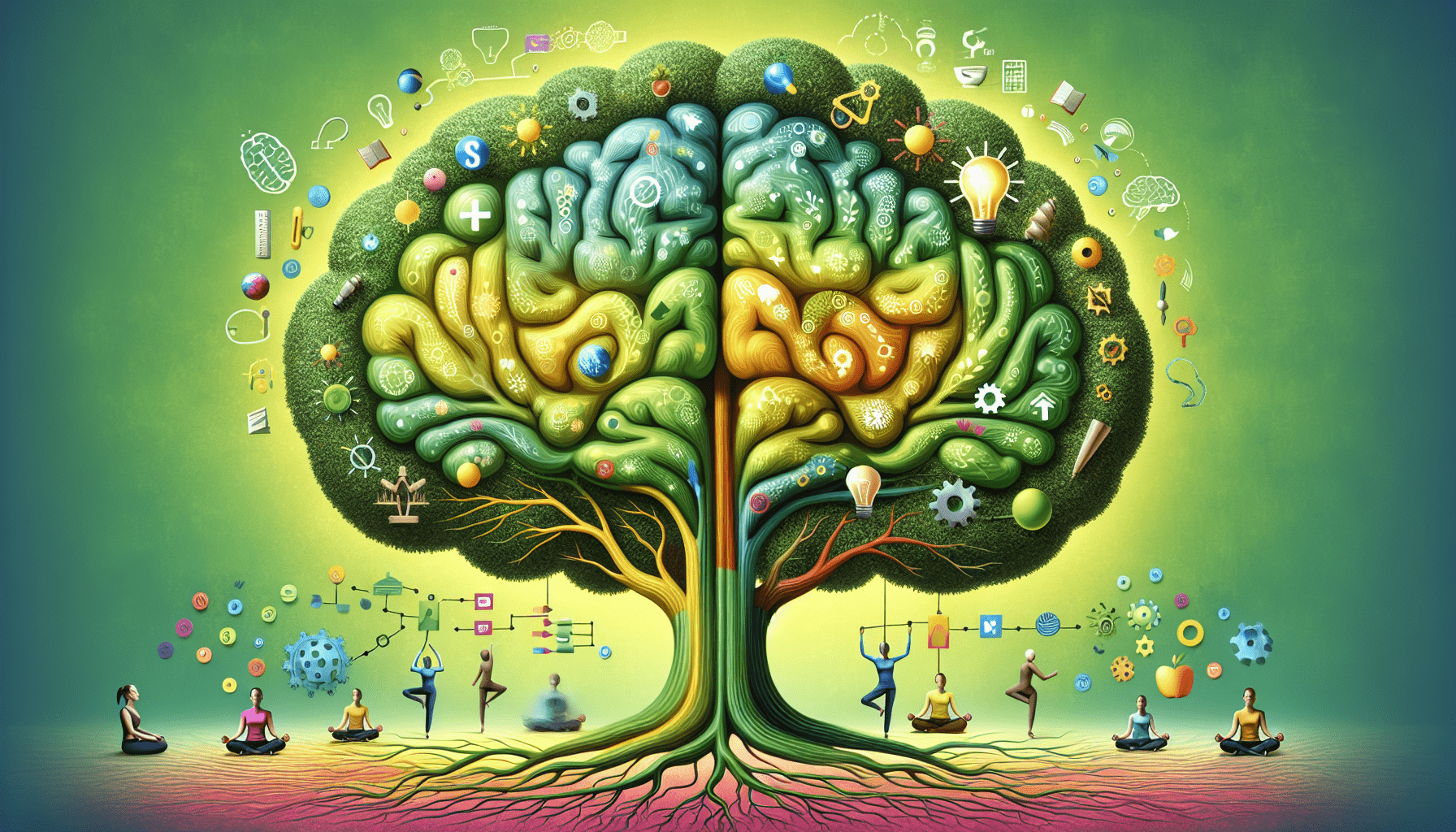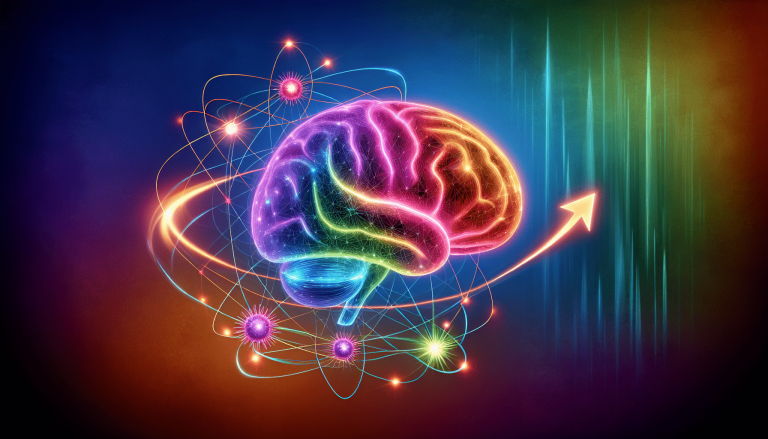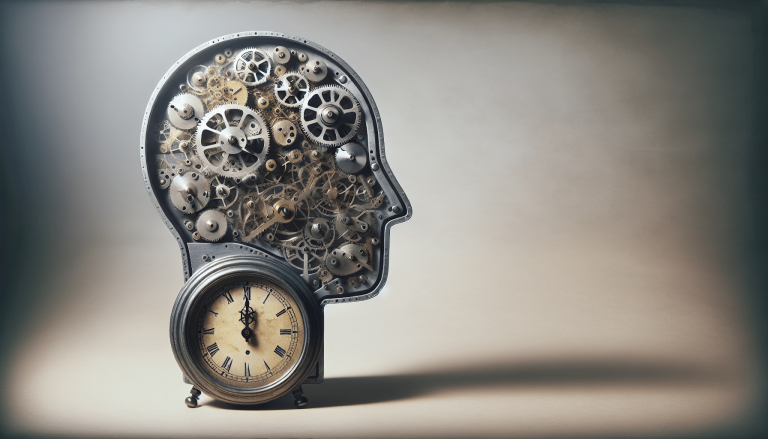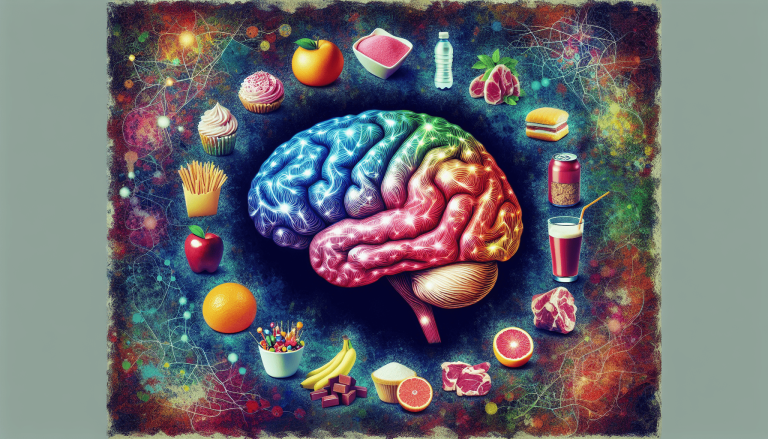How Can You Improve The Function Of The Brain?
Are you looking for ways to enhance the power of your brain? If you’re curious about how to improve its function, you’ve come to the right place! We all want to boost our cognitive abilities, whether it’s to excel at work, remember important details, or simply stay sharp as we age. In this article, we will explore some effective strategies that can help you unlock the true potential of your brain. So let’s dive right in and discover how you can give your mind a much-needed boost!
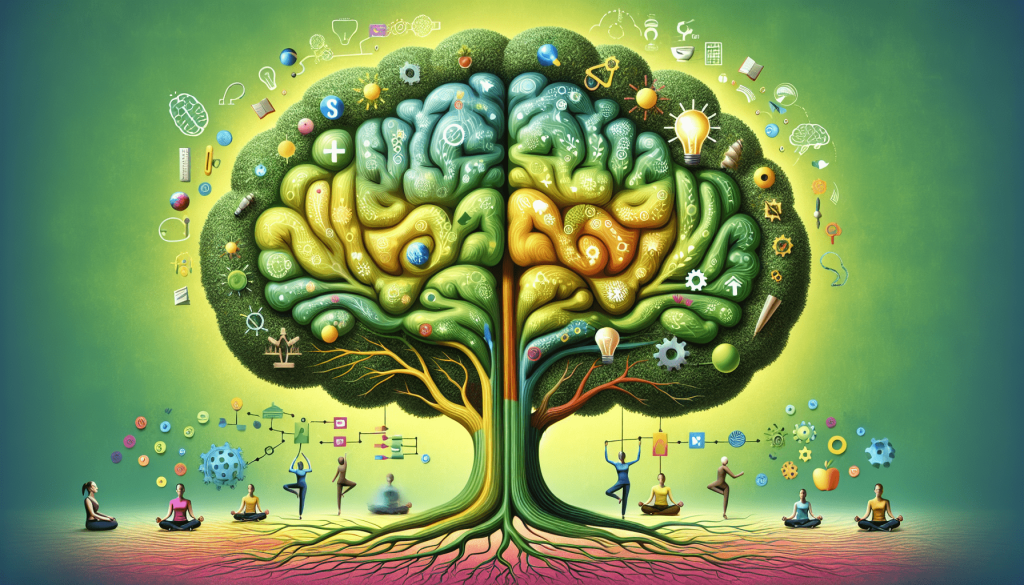
Physical exercise
Physical exercise is a key factor in improving the function of your brain. Engaging in regular aerobic exercise has been proven to increase blood flow to the brain, which in turn enhances cognitive function. Activities such as running, cycling, swimming, and dancing are great options for boosting your brainpower.
Strength training is another form of exercise that can benefit your brain. Not only does it help build muscle and increase bone density, but it also stimulates the release of growth factors in the brain, promoting the growth of new neurons. Incorporating exercises like weightlifting, bodyweight exercises, or using resistance bands into your routine can have a positive impact on your cognitive abilities.
Yoga, with its focus on breathing techniques and mindfulness, has been shown to improve brain function as well. The combination of movement, flexibility, and relaxation in yoga can reduce stress levels, increase concentration, and enhance memory. Practicing yoga regularly can help you sharpen your mental skills and improve your overall brain health.
Tai chi is another mindful exercise that can benefit your brain. This ancient Chinese martial art combines slow, flowing movements with deep breathing and mental focus. It has been shown to improve cognitive performance, boost attention span, and enhance memory. Incorporating tai chi into your routine can help you achieve a calm mind and a sharper brain.
Healthy diet
Eating a healthy diet is crucial for optimizing brain function. Including a variety of fruits and vegetables in your meals provides essential vitamins, minerals, and antioxidants that protect your brain from oxidative stress and inflammation. Berries, leafy greens, and cruciferous vegetables like broccoli are particularly beneficial for brain health.
Omega-3 fatty acids, found in fatty fish like salmon, sardines, and trout, as well as walnuts and flaxseeds, are essential for brain health. These fatty acids help build and maintain cell membranes in the brain, improve communication between brain cells, and reduce inflammation. Including omega-3-rich foods in your diet or taking supplements can support cognitive function and reduce the risk of cognitive decline.
Antioxidants, found in foods like blueberries, dark chocolate, and green tea, counteract the damaging effects of free radicals in the body. These compounds protect brain cells from oxidative stress and reduce inflammation, contributing to better brain health. Including antioxidant-rich foods in your diet can promote optimal brain function and protect against cognitive decline.
Whole grains, such as oats, quinoa, and brown rice, provide a steady release of glucose to the brain, which is its main source of energy. Consuming whole grains can improve focus, attention, and memory. These foods also contain fiber and other nutrients that support overall brain health and reduce the risk of conditions such as dementia and Alzheimer’s disease.
Adequate sleep
Getting enough sleep is vital for optimal brain function. During sleep, the brain consolidates memories and eliminates toxins, which are crucial processes for learning and overall brain health. Lack of sleep can impair attention, concentration, and cognitive abilities.
The benefits of sleep extend far beyond just feeling refreshed. It helps regulate mood, boosts creativity, enhances problem-solving skills, and improves overall cognitive performance. A good night’s sleep also strengthens the immune system and promotes physical health.
The recommended sleep duration for adults is 7-9 hours per night. However, individual needs may vary. It’s important to find the ideal sleep duration that allows you to wake up feeling rested and alert. If you struggle with sleep, establishing good sleep hygiene practices can greatly improve your sleep quality.
Creating a sleep routine involves going to bed and waking up at consistent times, even on weekends. This helps regulate your body’s internal clock and improve the quality of your sleep. Avoiding stimulants like caffeine and electronic devices close to bedtime can also contribute to better sleep. Creating a calm, comfortable sleep environment and engaging in relaxing activities before bed, such as reading or taking a warm bath, can further enhance your sleep experience.
Mental stimulation
Keeping your brain mentally stimulated is essential for maintaining its function and preventing cognitive decline. Doing activities that challenge your brain can improve memory, attention, and problem-solving abilities.
Reading and learning new information can provide a constant source of mental stimulation. Whether it’s reading books, newspapers, or articles, exposing yourself to new ideas and expanding your knowledge can help keep your brain active and improve cognitive function. Consider exploring different genres and topics to keep your mind engaged and curious.
Puzzles and brainteasers are excellent tools for mental stimulation. Activities like crosswords, Sudoku, jigsaw puzzles, and word games can enhance memory, attention to detail, and critical thinking skills. These activities not only provide entertainment but also give your brain a workout and can even help prevent age-related cognitive decline.
Learning a new skill, whether it’s playing a musical instrument, painting, or dancing, can have significant benefits for your brain. Acquiring new skills challenges your brain to form new connections and strengthens existing neural networks. It can improve cognitive flexibility, enhance memory, and boost creativity. So don’t be afraid to try something new and embark on a learning journey.
Brain training apps have gained popularity in recent years as a way to improve cognitive function. These apps offer a variety of exercises and games designed to target different cognitive skills such as memory, attention, and problem-solving. While their effectiveness may vary, incorporating brain training apps into your routine can be a fun and engaging way to keep your brain sharp.
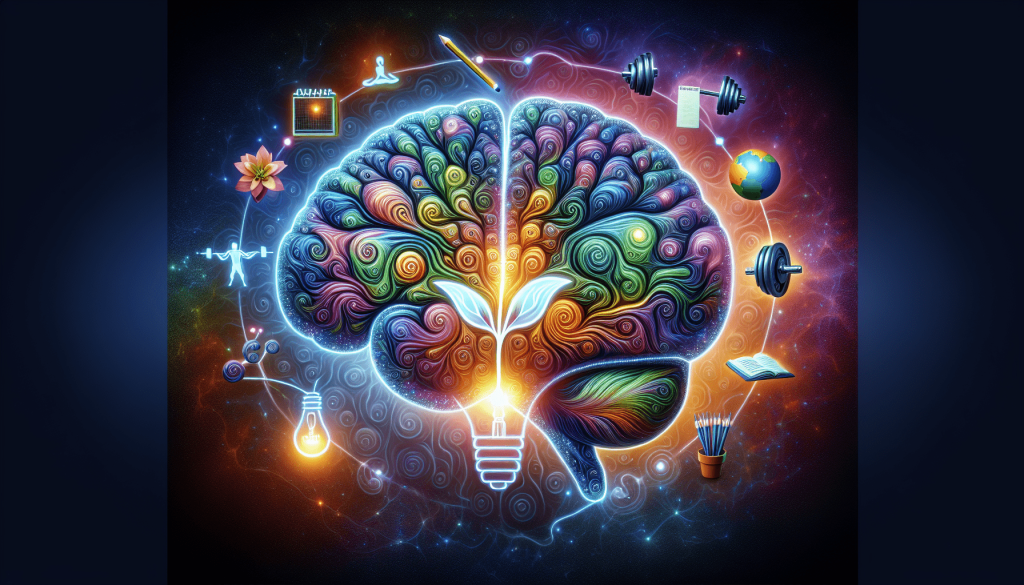
Stress management
Stress can have detrimental effects on both your physical and mental health, including your brain function. Therefore, it is crucial to adopt effective stress management techniques to protect and enhance your brain health.
Identifying stressors is the first step in managing stress. By recognizing the sources of stress in your life, you can better evaluate their impact and develop strategies to cope with them. Whether it’s work-related stress, relationship issues, or financial pressures, understanding what triggers your stress can empower you to take control and find healthier ways to manage it.
Practicing relaxation techniques can help alleviate stress and promote overall brain health. Deep breathing exercises, progressive muscle relaxation, and guided imagery are effective techniques that can activate the body’s relaxation response, reducing stress levels and promoting a sense of calm. Regularly incorporating these techniques into your routine can help manage stress and improve cognitive function.
Mindfulness and meditation have gained significant attention for their ability to reduce stress and enhance brain function. Mindfulness involves focusing your attention on the present moment, bringing awareness to your thoughts and feelings without judgment. Meditation, on the other hand, encourages deep relaxation and mental clarity. Both practices have been shown to increase gray matter in the brain, improve attention, and reduce anxiety and depression. Integrating mindfulness and meditation into your daily life can have profound effects on your brain health.
Time management plays a crucial role in stress reduction. By organizing your time effectively and prioritizing tasks, you can reduce the feeling of being overwhelmed and stressed. Setting realistic goals, breaking tasks into smaller manageable steps, and delegating when necessary can help optimize your productivity and minimize stress levels. Remember to also make time for relaxation, hobbies, and activities that bring you joy and provide a break from daily stressors.
Social interaction
Socializing is not only enjoyable but also vital for maintaining a healthy brain. Engaging in social activities and maintaining meaningful relationships can have numerous benefits for your cognitive function and overall well-being.
The benefits of socializing extend beyond the immediate joy and happiness it brings. Interacting with others stimulates your brain, improving memory, attention, and problem-solving skills. Engaging in conversations and discussions, sharing experiences, and learning from others can all contribute to enhanced cognitive abilities.

Joining groups or clubs that align with your interests or hobbies can provide opportunities for social interaction and mental stimulation. Whether it’s a book club, a sports team, a gardening society, or a community group, participating in regular group activities can foster a sense of belonging and mental engagement. The camaraderie and support from like-minded individuals can also contribute to better overall brain health.
Volunteering or helping others is not only beneficial to the community but also to your brain. The act of giving back and being of service to others can boost feelings of happiness and fulfillment. Volunteering can also provide opportunities for social interaction and expose you to new experiences and perspectives, stimulating your brain in meaningful ways.
Maintaining healthy relationships with family, friends, and loved ones is crucial for your mental well-being. Spending quality time with those you care about, sharing emotions, and engaging in positive communication can strengthen your social bonds and have long-term benefits for your brain health. Forming and maintaining healthy relationships can provide a support network, reduce stress levels, and promote overall cognitive function.
Brain-healthy habits
Certain lifestyle choices can significantly impact your brain health and cognitive abilities. Adopting brain-healthy habits can contribute to long-term brain function and reduce the risk of cognitive decline.
Avoiding smoking and excessive alcohol consumption is essential for preserving brain health. Smoking damages blood vessels and reduces blood flow to the brain, while excessive alcohol intake can lead to brain shrinkage and impair cognitive function. Quitting smoking and moderating alcohol consumption can greatly benefit your brain health.
Reducing screen time is crucial in the digital age we live in. Excessive screen time, whether it’s from smartphones, computers, or televisions, can negatively affect brain health. It can lead to decreased attention span, poor memory, and disrupted sleep patterns. Setting limits on screen time and incorporating regular breaks and offline activities can preserve your brain function and promote a more balanced lifestyle.
Engaging in creative activities is an excellent way to stimulate your brain and nurture your creativity. Whether it’s painting, drawing, playing a musical instrument, or writing, creative endeavors activate various regions of the brain and improve cognitive abilities. These activities not only provide enjoyment but also offer a unique outlet for self-expression and promote overall brain health.
Maintaining a positive mindset can greatly impact your brain health and well-being. Negative emotions and stress can adversely affect cognitive function, while a positive outlook promotes resilience and mental well-being. Cultivating gratitude, practicing self-compassion, and reframing negative thoughts can help foster a positive mindset and contribute to better brain function.
Manage chronic conditions
Chronic conditions such as high blood pressure, diabetes, stress, anxiety, and depression can significantly impact brain function if left unmanaged. Taking proactive steps to control these conditions is crucial for preserving brain health.
Controlling blood pressure and managing diabetes are particularly important as these conditions can damage blood vessels and impair blood flow to the brain. Engaging in regular exercise, following a healthy diet, and taking prescribed medications can help manage these conditions and reduce the risk of cognitive decline.
Managing stress and anxiety is essential for maintaining optimal brain function. Chronic stress and anxiety can lead to cognitive impairment and negatively affect memory and attention. Developing healthy coping mechanisms, seeking support from professionals or support groups, and practicing relaxation techniques can all help reduce stress and anxiety and promote a healthier brain.
Treatments for depression or other mental health issues should be sought if necessary. Depression can affect cognitive function and memory, making it crucial to address these conditions through therapy, medication, or a combination of both. Seeking professional help can provide the support and guidance needed to manage these conditions and improve brain function.
Seeking medical advice for any chronic conditions or concerns related to brain health is essential. Regular check-ups with a healthcare professional can help identify potential risks, monitor existing conditions, and provide personalized recommendations for maintaining optimal brain function. It’s important to remember that early intervention and proactive management can greatly impact your brain health in the long run.
Stay hydrated
Staying hydrated is not only important for your physical health but also for optimal brain function. The brain is made up of around 80% water, and even mild dehydration can impair cognitive abilities and negatively affect mood and concentration.
The importance of hydration cannot be stressed enough. Drinking enough water throughout the day helps maintain the balance of electrolytes in the body and facilitates the efficient transport of nutrients and oxygen to the brain. This, in turn, supports cognitive function, memory, and overall mental performance.

The recommended daily water intake varies depending on factors such as age, sex, weight, and physical activity level. As a general guideline, aim to consume at least 8 cups (64 ounces) of water per day. However, listen to your body’s thirst signals and adjust your intake accordingly. Additionally, certain conditions such as intense physical activity, hot weather, or illness may require increased water consumption.
Recognizing signs of dehydration is crucial for ensuring proper hydration. Symptoms of dehydration include increased thirst, dry mouth, fatigue, dizziness, headache, and dark-colored urine. If you experience any of these symptoms, it’s important to hydrate immediately and replenish fluid levels. Remember that prevention is key, so make an effort to drink water regularly throughout the day, even if you don’t feel thirsty.
There are several ways to stay hydrated besides simply drinking water. Consuming hydrating foods such as fruits and vegetables, which have high water content, can contribute to your overall hydration. Additionally, herbal teas, smoothies, and electrolyte-rich drinks can help maintain hydration levels. Make staying hydrated a priority and ensure that your brain has the necessary fluids to function optimally.
Brain-boosting supplements
In addition to a healthy diet and lifestyle, certain supplements can support brain function and cognitive abilities. While they should not replace a balanced diet, incorporating these supplements into your routine can provide an extra boost for your brain health.
Omega-3 fatty acids, found in fish oil supplements, are known for their numerous benefits for brain health. They support the structure of brain cells, reduce inflammation, and promote overall cognitive function. Including omega-3 supplements in your daily regimen, especially if you don’t consume enough fatty fish in your diet, can potentially enhance brain health.
Vitamin B12 is essential for brain function and the production of red blood cells. Deficiency in vitamin B12 can lead to cognitive decline and memory problems. Taking vitamin B12 supplements can help meet your daily requirements and support healthy brain function. It’s important to consult with a healthcare professional to determine the appropriate dosage and ensure that it fits your specific needs.
Ginkgo biloba is a popular supplement believed to enhance memory and cognitive function. It contains compounds that improve blood flow to the brain and have antioxidant properties, protecting against neuronal damage. While research on its effectiveness is mixed, some studies suggest that ginkgo biloba may have positive effects on memory and concentration. Always consult with a healthcare professional before starting any new supplements.
Phosphatidylserine is a naturally occurring phospholipid found in high concentrations in the brain. It plays a crucial role in neuronal signaling and communication. Supplementing with phosphatidylserine may have benefits for memory, attention, and overall cognitive function. As with any supplement, it’s important to consult with a healthcare professional for appropriate dosage and guidance.
While these brain-boosting supplements may offer potential benefits, it’s important to remember that they should be used in conjunction with a healthy lifestyle and a balanced diet. Supplements are not a magic solution, and individual responses may vary. It’s always best to consult with a healthcare professional before starting any new supplements to ensure they are safe and suitable for you.
In conclusion, improving the function of your brain requires a holistic approach that encompasses various aspects of your lifestyle. Engaging in physical exercise, adopting a healthy diet, getting adequate sleep, keeping your brain mentally stimulated, effectively managing stress, nurturing social connections, and practicing brain-healthy habits are all key components for optimizing brain function. Taking proactive steps to manage chronic conditions, staying hydrated, and considering brain-boosting supplements can provide additional support for brain health. By prioritizing these factors and making them a part of your daily routine, you can enhance your cognitive abilities and enjoy a healthier, happier brain.
Additional Resources

This could break the brain function improvement industry in half…
You may be skyrocketing your risk of dementia…and that’s why you need to know how easily you can reverse your brain function.
This amazing breakthrough is designed to repair mental acuity and give anyone who uses it the best mental alertness with improved memory and focus in no time

